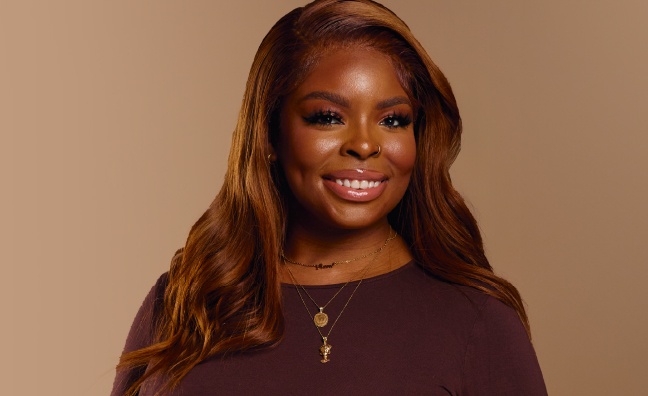Since it formed back in 2020, the Black Music Coalition has played a pivotal role not only in addressing anti-Black systemic racism in the industry, but also in uplifting and celebrating members of the Black music community with its annual Excellence Honourees list. Here, we meet one of its latest recipients, Two Tabs Social’s founder Rami Kadri…
How did you get to where you are in the music business today?
“My journey was quite unconventional! I studied criminology and social policy at university because I’ve always been passionate about social mobility and inequality. While I was at university, I started blogging as a creative outlet and would talk about fashion, beauty and music. Back then, creative roles didn’t feel accessible but via blogging I discovered a whole new world. I interned every summer break, did London Fashion Week, fashion PR roles and after I graduated, I got a PR internship role at a charity dedicated to supporting victims of crime. Although this was related to my degree, it didn’t give me space to explore my creativity so I moved to a long-term marketing role at the BPI. I then went on to work at Universal Music, then Sony Music in 2016 doing digital campaigns for artists including Little Mix. After the success of those campaigns – Shout Out To My Ex and [parent album] Glory Days – and with the support of my then manager, I set up Two Tabs Social eight years ago, with Little Mix being my first client.”
What’s been the biggest obstacle you have faced so far and how did you overcome it?
“The biggest obstacle for Two Tabs Social was Covid – for a while, all projects were on hold whilst teams were designing new strategies. It was a slow and scary start. However, once labels realised their consumers were engaging more with online content, my area of expertise became a priority. As my client base grew by over 300% I had to study the digital landscape to help my clients reach their goals. I had regular calls with TikTok to stay ahead of the fast moving trends. For one of my clients who could no longer host events, I focused on activations and incentives to grow their mailer subscribers, resulting in an increase of 15,000 sign-ups.”
What’s your message to people across the industry who will read this regarding the fight against discrimination in music?
“As someone who has experienced discrimination while working in music, I’m grateful that organisations like the BMC exist, which give a voice to the voiceless and educate people. My message is that discrimination is still an issue in our industry – it not only harms people, it stifles creativity. Diversity enriches the creative process by introducing multiple viewpoints, leading to unique ideas. Different perspectives can inspire new ways of thinking and you are better equipped to understand the different audiences which we serve in music.”

As a business founder, what single quality has been the cornerstone of your success?
“My personality and relatability is my USP; I collaborate to build campaigns. I can get along with a brick wall, which helps with artists trusting me. I can also work between the label and team to encourage the artist to get things done. A standard agency might not teach the artist as well as working across strategy – artist development also consists of online!”
What frustrates you most about the industry?
“When there is no clear vision for an artist. Audiences are smart, they can tell! When you understand the artist you’re developing, you will understand the audience you are trying to reach. It makes my job easier when the vision can be communicated; we can design a purpose- driven campaign that rings true to who they are. Suggesting they jump on a trend that does not align with who they are does not count. For a developing artist, I sit with them to outline their pillars – what are their interests? This helps me build plans where the core of who they are can be reflected in their social output and, long term, can lead to relevant brand partnerships.”
Looking to the future, what excites you most?
“Aside from digital trends and us racking our brains around the benefits of AI, I’m excited for the surge of African music. I had suggested African artists for features in label meetings early on in my career but people were not buying in to it. Amapiano dominating beyond South Africa, plus CKay, Wizkid, Asake, Rema, and Burna Boy making history... They all contributed to labels investing more in African artists. I hope this also means diverse teams who understand the African market will be working across up-and-coming African acts.”












